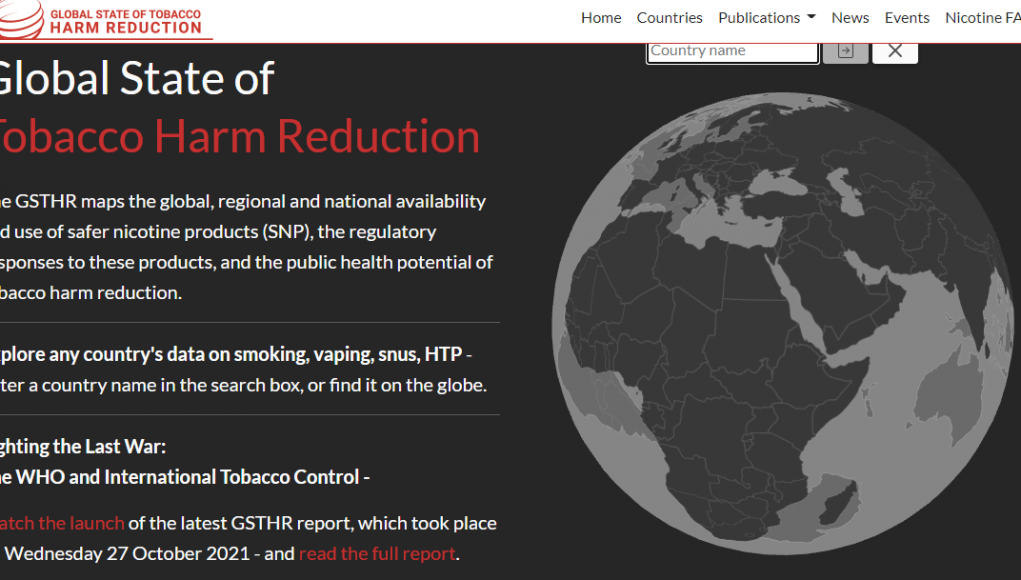The GSTHR report, Fighting The Last War: The WHO and International Tobacco Control was launched on the 27th October, and aims to draw attention to, and challenge the direction of the COP9. Sadly, the agenda and briefing papers of the conference have indicated that once again the the FCTC Secretariat and leadership are continuing to urge policymakers against the adoption of tobacco harm reduction approaches that could help save millions of lives.
To this effect the GSTHR Briefing Papers are focused on the topic of tobacco harm reduction. The first provides a brief overview of both the FCTC and the Conference of the Parties biennial meetings, explaining their role in informing global tobacco and nicotine policy, whilst highlighting their problematic elements.
The second GSTHR Briefing Paper focuses on the UK’s potential leadership role at COP9. The UK has been exemplary in endorsing tobacco harm reduction strategies, which have led to it boasting the lowest smoking rates ever reported locally.
Study: Countries which DO NOT endorse WHO guidance boast lowest smoking rates
Meanwhile, a recent 59-page white paper discussing case studies conducted in several countries to measure smoking cessation-related progress, has confirmed the above arguments. The document has shown that those countries following the World Health Organization’s guidance, keep struggling with higher smoking rates.
Titled “Vaping Works. International Best Practices: United Kingdom, New Zealand, France and Canada,” the publication was released by the Property Rights Alliance. It consisted of four respective case studies by Christopher Snowdon (Institute of Economic Affairs, the UK), Louis Houlbrooke (New Zealand Taxpayers’ Union, New Zealand), Patrick Coquart (IREF, France), and Prof Ian Irvine (Concordia University, Canada).
“Countries applying progressive Tobacco Harm Reduction policies are enjoying a significant fall in smoking rates. Whereas those following the World Health Organization’s guidance continue to experience excessive smoking-related illnesses and deaths,” said the Coalition of Asia Pacific Tobacco Harm Reduction Advocates (CAPHRA).
Global Broadcast Discussing The FCTC COP9 Planned to Counter WHO Secrecy












